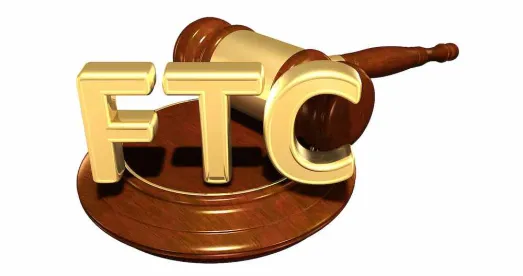On June 27, 2023, the Federal Trade Commission (FTC), in concurrence with the Antitrust Division of the US Department of Justice (DOJ), announced a proposal to drastically overhaul the Hart-Scott-Rodino (HSR) premerger notification process. The proposed rulemaking is yet another step in this Administration’s pursuit of its ambitious enforcement agenda, furthering the goals outlined in President Biden’s Executive Order aimed at promoting competition in the American economy. The proposal would radically increase the reporting burden on filing parties for transactions that meet the HSR filing thresholds, as it would require significantly more information and documentation regarding the parties’ operations, management, and minority owners, as well as the transaction’s potential impact on competition. These changes will have a major impact on the time, effort and cost of preparing HSR filings, even for deals that raise no competitive issues, and could also have broader implications for dealmaking.
The Notice of Proposed Rulemaking (NPRM) states that this sweeping overhaul is long overdue and is necessary because “the information currently collected…is insufficient for the Agencies to conduct an effective and efficient initial evaluation of a transaction’s likely competitive impact.” According to a statement issued by FTC Chair Lina Khan in conjunction with the release of the proposed rulemaking, these changes will bring the US HSR form more in line with its foreign counterparts, such as the EU and UK. One stark difference, however, it that the proposed US changes would require the submission of extensive documents and information for all reportable transactions; in the EU, for example, for mergers that do not present substantial overlaps, a simplified filing is permitted, which significantly reduces the information requirements, and hence the burden on the filing parties, for those merger notifications.
Overview of Existing Merger Review Process
The Hart-Scott-Rodino Antitrust Improvements Act of 1976, as amended (the HSR Act), requires parties intending to enter into transactions that meet certain dollar value thresholds (and that are not otherwise exempt) to file a notification form with the FTC and DOJ, and to wait a specified period of time (typically 30 calendar days), before consummating their transaction. Failure to comply with the HSR Act carries a potential penalty of over $50,000 per day. Under the current rules, the parties are required to submit certain information and data regarding their corporate structure and operations, and in certain instances, the acquiring party may also have to submit information concerning the operations of affiliates under common management. The parties also must file internal transaction-related documents prepared by or for officers or directors of the filing party that discuss the impact of the proposed transaction on competition or expected synergies and efficiencies.
The majority of HSR-reportable transactions raise no antitrust concerns and are finalized after the initial waiting period expires. If, however, during the initial waiting period the FTC or DOJ identifies the potential for the notified transaction to substantially lessen competition, a more in-depth investigation is triggered in which the federal antitrust authorities ask the filing parties for significant additional information. Such a “Second Request” can extend the antitrust review period by many months, at the end of which the investigating agency must either allow the transaction to close, sue to block the deal, or seek remedies (such as asset divestitures) to resolve the competitive concerns.
Proposed Changes to HSR Filing Requirements
The existing requirements would be greatly expanded under the current proposal, resulting in filing parties and their counsel expending significantly more time and effort to prepare their HSR notification forms. Some of the most impactful proposals will require submission of the following information and documents:
-
Discussion of strategic rationale for the transaction (including those related to competition for products or services of the filing party that would or could compete with products of the other filings person(s)), along with a diagram of the deal structure and details regarding investment vehicles;
-
Written description of both current and planned horizontal product and service overlaps (including projected revenue streams), and a narrative describing both current and potential vertical/supply relationships between the parties. As proposed, there is no de minimis market share or revenue threshold exemption for the reporting of overlaps;
-
Documents discussing the competitive aspects of, or synergies or efficiencies associated with, the proposed transaction that were created by or for the deal team lead(s) as well as officers and directors (currently, the collection is limited to the latter group), as well as draft versions of all responsive documents (previously, only final versions were required);
-
High-level strategic business documents created in the ordinary course (i.e., not in contemplation of the transaction), such as strategic plans and reports prepared within one year prior to filing that discuss market shares, competition, competitors, or markets of overlapping products or services;
-
Identification of and information on officers, directors, and board observers of all entities within the acquiring person, including identification of other entities those individuals currently serve, intend to serve, or have served within the two years prior to filing, as an officer, director, or board observer;
-
Identification of interest holders that could exert influence, including all creditors and entities that hold non-voting securities, options, or warrants totaling 10 percent or more;
-
Identification of limited partners that hold minority interests in the parties involved in the transaction (currently, the HSR form only requires disclosure of the general partner);
-
All schedules and other agreements specific to the transaction, including any non-competition and non-solicitation agreements and any other agreement negotiated with key employees, suppliers or customers in connection with the transaction;
-
Details regarding acquisitions (by the buyer and the target entity) of any size during the previous 10 years in any area in which the buyer and target have overlapping products or services;
-
Details regarding how the deal might impact labor markets (an area of increasing interest for antitrust enforcers). The proposal calls for submission of data on the firms’ workforce, geographic information on employees, and disclosure of certain labor and workplace safety violations; and
-
Various additional information regarding subsidies received from certain foreign governments or entities of concern to the United States; certain contracts with defense or intelligence agencies; each filing party’s document and communications systems; and other jurisdictions where the parties must file the transaction.
Significantly, where a definitive agreement has not been executed, early stage letters of intent will no longer be accepted as a basis for filing HSR and starting the waiting period; rather, there will need to be at least a term sheet or draft agreement that reflects sufficient detail about the scope of the entire transaction.
Implications of the Proposed Changes
Under the current HSR filing rules, it usually takes the merging parties and their counsel one to two weeks to collect the required information and documents and prepare a typical filing. If the proposed rules take effect in their existing form, even straightforward transactions that raise no competitive issues, which comprise the majority of HSR-reportable deals, could require twice as much work to prepare, with a corresponding increase in cost to the merging parties. For deals that have competitive overlaps, the impact will be even greater; the FTC itself estimated that the average compliance workload will increase by 222 hours per filing, which could mean two to three months of work just to get the HSR filings done.
Merging parties will need to factor this new reality into their deal timelines and budgets. Transaction agreements will need to allow for more time to file HSR and parties may be incentivized to begin filing preparations well before deals are signed. Transaction parties will also need to approach the antitrust-related aspects of their deals differently, as they will now be under an affirmative obligation to disclose competitive overlaps, and they will need to pay greater attention to document creation and preservation.
It is also quite possible that the vast amount of additional information in the HSR filing could overburden agency staff during the initial 30-day waiting period and result in more companies being left with little choice but to withdraw their initial filing and refile to give staff an additional 30 days, with the aim of avoiding an even more burdensome Second Request.
Next Steps
The proposed changes are subject to a 60-day public comment period, which ends on August 28, 2023. The FTC will then review the comments and issue a final rule, which must be published 60 days before going into effect. Thus, it is possible that the changes to the HSR filing process could be effective as early as the end of 2023.




 />i
/>i

